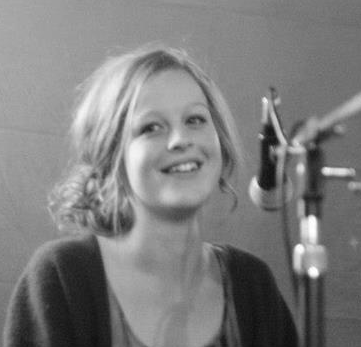Essay Structure
In todays symposium Adrian stressed the importance of editing and how this can distinguish a High Distinction essay from, for example, a Credit essay. He then went on to talk about the structure of a good essay:
A good essay is not an opinion, it is an informed, evidence based argument. It is not reflective so much as critical and analytical.
To truly write well and employ a high level of critical thinking is tricky, and requires engagement with ideas. True engagement means deep analysis and evidence or research. It also requires a specific focus or point that one can flesh out thoroughly rather than 1000 things briefly mentioned; that is as Betty mentioned “thinking deeply rather than broadly”. Furthermore, direction in any essay is crucial. Driving an argument towards a final conclusion or climax can be more difficult than it seems as it’s rather easy to get sidetracked. This is why knowing your point is so important.
The Oracle of Bacon
The Oracle of Bacon is a brilliant demonstration of the pure scale of the online network, an awesome example used by Adrain in this week’s symposium.
Can you find more than four?
Its a struggle!
Spring has Sprung
This is a photo I took yesterday.
Interestingly enough, after seeing this little dandelion just doing it thing I felt compelled to take a photo of it.
It really got me thinking.
Something so small and insignificant, and yet so intricate and beautiful, not unlike a network! A tiny ecosystem operating under a set of common conventions. Networks are everywhere!
Neutral Technologies
The concept of network media is arguably more recent and superior than the term digital. Adrian argues that the term digital is pretty much a given these days and yet, has not been ‘destructive’ as such in its effect on media. The internet on the other hand undoubtedly has this potential. Not only has the internet changed the way we operate technology but has rendered many technologies and ideas redundant in its wake.
What is neutral technology? Does neutrality take into account the way people use and manipulate a particular medium? Furthermore, can the neutrality of a technological medium change over time? The example of the Text message (now an undoubtedly social medium) was given, as originally it was not intended for interpersonal communication. All this being said, does a neutral technology actually exist?
Specifically in regards to the internet, is neutrality even possible? I would argue no, as it will always be subject to the way we use and manipulate it in order to gratify or serve ourselves. Furthermore, certain mediums will lend themselves to particular things more than others simply by nature.
Cutting Community TV
I was totally shocked to hear about the governments choice to eliminate Community Tv as of end 2015.
However, the claim that they will be moving online was definitely interesting. I think this choice will dramatically effect our ability as students to publish our work on TV and gain experience in the TV industry. Yet, the shift to online programs may in fact actually benefit us as the internet is undoubtedly becoming the most popular television and film medium. There are definitely two sides to this story, as on one hand this choice definitely limits young people and particularly uni students (such as those working with Channel 31), but on the other hand, perhaps it is helping to pave the way for the inevitable internet generation.
‘Captains of Industry’
Visited an internet cafe today ‘Captains of Industry’.
Got me thinking about the concept of internet cafe’s in general and how (even in Melbourne alone!) they have become such a significant part of our culture. What does this say about our society?
Food for thought!
(And also just food in general!)
Symposium #6
‘ A word can only mean something by not what it is but by what it is not’.
This interesting, thought provoking and slightly mind boggling concept that Adrain discussed in this weeks symposium really got me thinking, who determines what a particular word means? Why is that word associated with certain concepts or ideas? In relation to one of the major questions for this week, what is art? What defines culture? what defines progression or technology? Are these words describing a concept that is one and the same or are they in fact different?
I’m definitely going to have to take some time thinking about this one!
Second port of call for this week: Are we in fact narcissistic online? What is narcism? What defines it? Adrian argues perfection. If so is narcism necessarily a negative? I honestly think it depends.
Most of us use the internet as a means of conveying our personal thoughts and feelings to the world through statuses, selfies, tweets etc. But what effect does this have on both our privacy and the way in which we conduct ourselves, particularly regarding our awareness of others?
